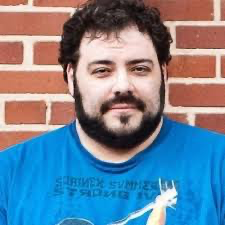We recently connected with Stephen Powell and have shared our conversation below.
Stephen , sincerely appreciate your selflessness in agreeing to discuss your mental health journey and how you overcame and persisted despite the challenges. Please share with our readers how you overcame. For readers, please note this is not medical advice, we are not doctors, you should always consult professionals for advice and that this is merely one person sharing their story and experience.
Being on the autism spectrum I wouldn’t say I have overcome the challenges it presents. I have learned how to manage it to a degree and use some of the traits of autism to my advantage. For example, weightlifting is a very technical sport. It isn’t just about pure strength it is expressing what strength you have very quickly. I am known for my meticulous detail in developing technique and helping other coaches and lifters around the world spot errors in their technique and make corrections accordingly. This is one way my brain can sharpen its focus. In most everyday situations my mind has several different avenues of thought that flood my brain at machine gun fire pace.
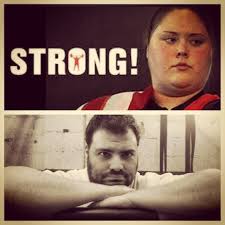
Thanks for sharing that. So, before we get any further into our conversation, can you tell our readers a bit about yourself and what you’re working on?
I have been coaching weightlifting and other strength sports for 27 years. In that time I have been a part of coaching 2 Olympian’s and 14 national champions. I have also worked with a handful of professional athletes including former NFL running back Samkon Gado. What is exciting about coaching is you never know who will walk through the gym doors. When I began working with Samkon Gado in high school I knew he was very talented. I never thought that one day I would be making dinner on a Monday night watching NFL football and hear the announcer say, “Samkon Gado with the touchdown.” His first season he was picked up by the Green Bay Packers in 2005 due to the many injuries that plagued the team that year. The last time I saw him (before that) was before his senior year in college, I had moved to Georgia at that time and never thought he would be in the NFL. No matter how long one coaches you would never think any specific athlete will be an Olympian or a pro athlete. Or at least have that caliber of an athlete ask you to help coach them. Those moments are rare but surreal. Most people who train are hobbyists. They train for weightlifting or Highland Games because it it the antidote to the anxieties of life. I really enjoy helping them reach their goals and learn how to believe in themselves. I hope 5-10 years from now to open a training center for weightlifting and for mentally and physically disabled people. A state of the art gym free to them.
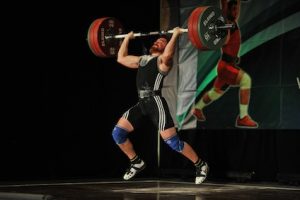
If you had to pick three qualities that are most important to develop, which three would you say matter most?
When I started training seriously at 13 I had a hunger for knowledge about all things regarding strength training and training for weightlifting. I checked out books in every library I could. I ordered training manuals from magazines and periodicals and attended seminars and competitions around the southeast when my dad could take me. By the time I was 16 I had a whole library of books and training manuals translated from Russian. I mention this because as a coach it s important to never get complacent or think you know everything. Every year we get new information from studies all over the world on recovery techniques, rehabilitation and diet. The advice I would give is don’t do your athletes the disservice of thinking you know it all. Never stop learning. Early on in my coaching career I sought out the best weightlifting coaches in the country. This lead me to even learn from some of the best in the world. The former head coach of South Korea, Shin-Ho Kang, immigrated to the U.S. after the Olympic Games in Sydney. He moved to Savannah, Ga and I began taking frequent trips there late that same year. I eventually moved to Savannah to learn from him in 2004. It was from him and other more experienced coaches that helped translate the knowledge I had in my head to simple cues that people can understand. This also takes experience so seek out individuals who are willing to show you the ropes and get as much experience as you can as early as you can. Be flexible, learn from your mistakes and keep going.
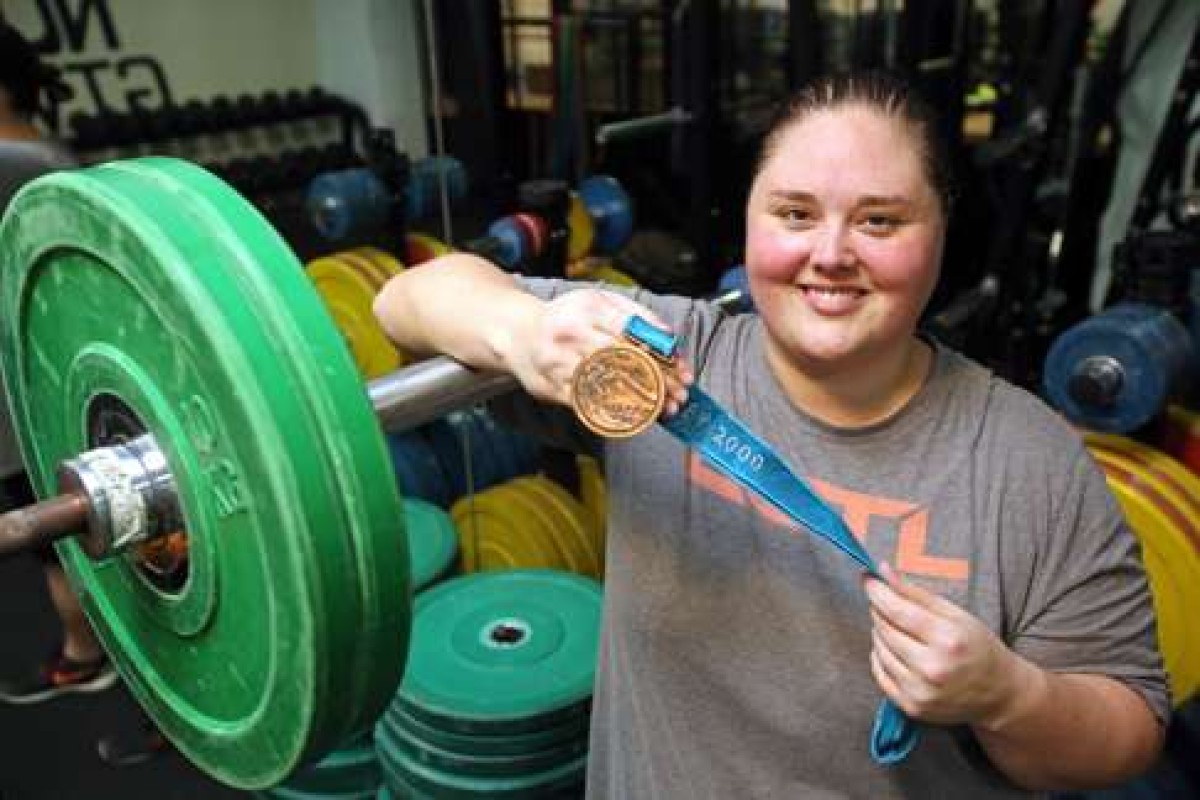
Thanks so much for sharing all these insights with us today. Before we go, is there a book that’s played in important role in your development?
One book that has impacted me the most is Extreme Ownership by Jocko Willink. This book really helped me with several issues I face being autistic. Culpability is a big issue. I can’t blame autism for every rash decision I have made or every time I interrupted someone or exhibit poor social skills. What I can do is inform people that if I interrupt I apologize in advance. My mind fires thoughts at a rapid pace and it can be hard to understand the give and take of a conversation or the point of the conversation. By stating this up front it lifts a weight and allows me to listen more intently. Those on the autism spectrum can be a stubborn and slow to changes in daily life. We have our routines and like to stick with them. However, life happens and change is necessary to grow. Like it or not changes happen in life different ways socially, geographically etc. Jocks’ book really helped me understand life is to be lived in the open not in cowering corners. There is freedom in purposely being uncomfortable and doing uncomfortable things. Although it took time, I started making changes more frequently in my daily life. I started socializing more. I joined a whiskey club. I struck up conversations with strangers. I do this so often now I don’t feel the anxiety I used to.
Contact Info:
- Website: palmettoweightlifting@gmail.com
- Instagram: https://www.instagram.com/stephen_powell_weightlifting
- Linkedin: https://www.linkedin.com/in/stephen-powell-46255421a
- Youtube: https://youtube.com/@powmongo
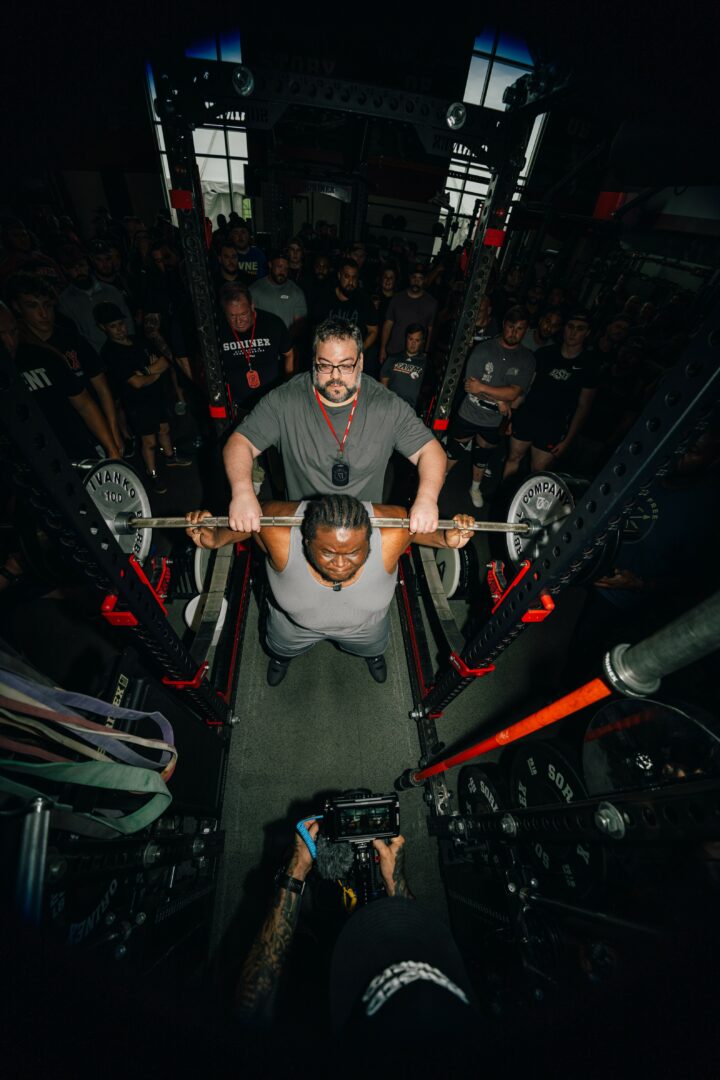
Image Credits
Top right Joe Syzmanak driving under a 145 kb (320 lbs ) clean & jerk
Top left a poster with Cheryl Haworth on top and me at the bottom promoting her documentary Strong,
Bottom right spotting Christian Rivers squatting 705 pounds at 17 at the Sorinex Summer Strong 17:this past may.
Bottom left Cheryl Haworth with her bronze medal she won in the 2000 Olympic Games in Sydney when she was 17
so if you or someone you know deserves recognition please let us know here.

